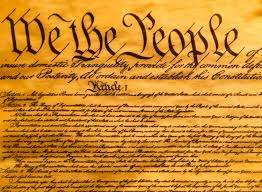The Volokh Conspiracy
Mostly law professors | Sometimes contrarian | Often libertarian | Always independent
My Scalia essay: 'Originalism as a Constraint on Judges'

Yesterday, I linked to most of an exchange between professors Michael Dorf and Larry Solum about whether originalism constrains judges. Solum has since posted the fourth and final of his replies, on the past and future of originalism. It is definitely worth reading.
Meanwhile, as luck would have it, I have just posted on SSRN a draft of a forthcoming essay I wrote on the same subject, for a special issue of the University of Chicago Law Review devoted to Antonin Scalia. (The essay was written last winter/spring so it doesn't incorporate Dorf's and Solum's recent contributions.) I offer several observations about whether originalism indeed "constrains" judges, whether we should care and what "constraint" really means. I especially focus on the difference between constraining the "willful" judge and the "puzzled" judge who would be happy to be constrained by the law if he could tell what it was.
Anyway, from the introduction:
One of Justice Antonin Scalia's greatest legacies was his promotion of constitutional originalism. He employed the interpretive philosophy on the bench and argued for it in print and in speeches around the country. (Indeed, one of Scalia's speeches about originalism at the University of Chicago in 2003 was formative in provoking my own thinking on the subject.)
One important feature of Scalia's particular arguments for originalism was constraint-the idea that originalism was centrally a way, the best way, to constrain judicial decision-making, whereas nonoriginalist theories would essentially license judges to make up constitutional law as they went along. . . .
But time comes for both men and theoretical arguments. In this short essay, I honor Justice Scalia with two observations about originalism and constraint. The first is that originalist scholars today are much more equivocal about the importance and nature of constraining judges. This is a point that may be obvious to those steeped in the latest originalist theory, but apparently cannot be stated often enough or clearly enough to those who are not.
The second observation, which relates to the first, is that the concept of constraint is ambiguous in several respects and that originalism may be better at some kinds of constraint than others. In particular, I emphasize the difference between external constraints, which help others to judge the interpreter, and internal constraints, which focus on allowing the interpreter to constrain him- or herself. As reflected and refined in modern scholarship, originalism may not be terribly good at the former, but it may be much better at the latter. In other words, originalism can still have constraining power, but mostly for those who seek to be bound.
And from the conclusion:
If a method of interpretation provided very little constraint in any sense, we might worry that was a clue that our method of interpretation was not a very accurate picture of the meaning it was trying to capture. We might worry that Professor Colby was right that originalism had become so capacious as to lose any meaning-had become an exercise in theater rather than law. Fortunately, however, that charge does not seem to be true of originalism, even today.
Again, this is not to say that its ability to constrain judging is the most important thing about originalism. If that were the way we chose constitutional theories, we would choose something else. But it remains of some importance that originalism operates as an internal constraint, that it guides the "puzzled" judge. That fact sets originalism aside from what has been called its greatest competitor-constitutional pluralism, most forms of which fail to contain a single "truthmaker." And it suggests that even as originalism has grown more sophisticated, it has actually kept some faith with one of Justice Scalia's central insights about interpretation-the importance of believing in something larger than yourself.
And the whole thing: "Originalism as a Constraint on Judges."


Show Comments (4)